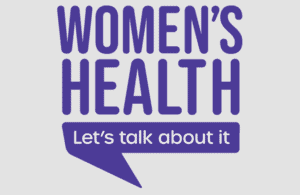Women’s Health Strategy Call For Evidence
March 7, 2021The Government is encouraging women to share their experiences of the health and care system via a call for evidence aimed at improving healthcare for women. The call for evidence will run for 12 weeks from 8 March.
- To mark International Women’s Day women, healthcare professionals and organisations that support and champion women’s health are being encouraged to share their experience via an online survey.
- All women are urged to share their experiences to form the basis of a new Women’s Health Strategy.
- The strategy will set an ambitious and positive new agenda to improve health and wellbeing and ensure health services are meeting the needs of women.
Mika Simmons, co-chair Ginsberg Women’s Health Board, filmmaker and host of The Happy Vagina podcast, said:
Every single woman I speak to, myself included, has experienced either misunderstanding or loss as a direct result of slow or inaccurate diagnosis of their health concerns. I am delighted that this – the gender health gap – which grew out of a severe lack of historical research into women’s health issues, is not only finally being acknowledged but that steps are being taken to right size it. I hope this new government drive for thoroughly inclusive data will ensure that all women in the UK, no matter what their background or cultural demographic, will finally have their voices heard and their health needs met, at the highest possible level. We can’t change the past but if we work together, I believe we can transform healthcare for women today and for future generations.
The call for evidence has been designed to be user friendly, quick to fill in and easily accessible from people’s mobiles. People who live with and care for women, organisations with experience of providing services for women and those with an expertise in women’s health are also encouraged to share their views.
The 6 core-themes included in the call for evidence are:
1. Placing women’s voices at the centre of their health and care – how the health and care system engages with and listens to women at the individual level as well as at the system level.
2. Improving the quality and accessibility of information and education on women’s health – women having access to high-quality information when they need to make a decision, increasing health literacy, as well as increasing awareness and understanding of women’s health conditions among clinicians.
3. Ensuring the health and care system understands and is responsive to women’s health and care needs across the life course – supporting women to maximise their health across their lives, and ensuring services are designed to maximise benefits for women.
4. Maximising women’s health in the workplace – deepening our understanding of how women’s health issues can affect their workforce participation and outcomes, both with regards to female-specific issues such as the menopause, but also conditions that are more prevalent in women such as musculoskeletal conditions, depression or anxiety
5. Ensuring that research, evidence and data support improvements in women’s health – inclusion of women and women’s health in research and data collection and how that information is used, and driving participation in clinical trials to support improvements in women’s health.
6. Understanding and responding to the impacts of COVID-19 on women’s health – supporting women through the unique challenges they’ve faced during the pandemic.
To participate please go to the 12 week call for evidence page.
Posted:
